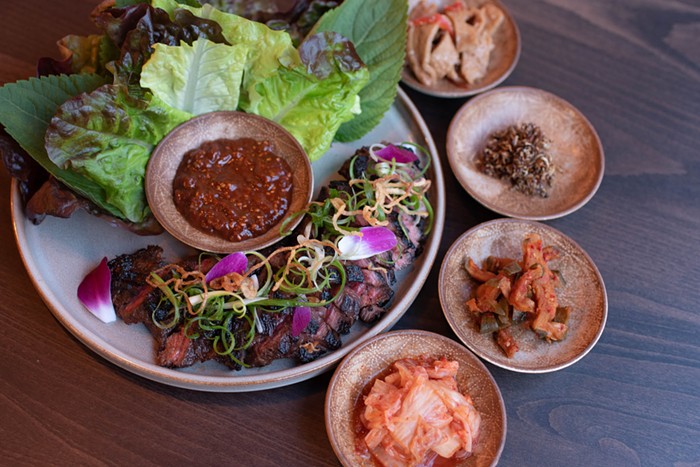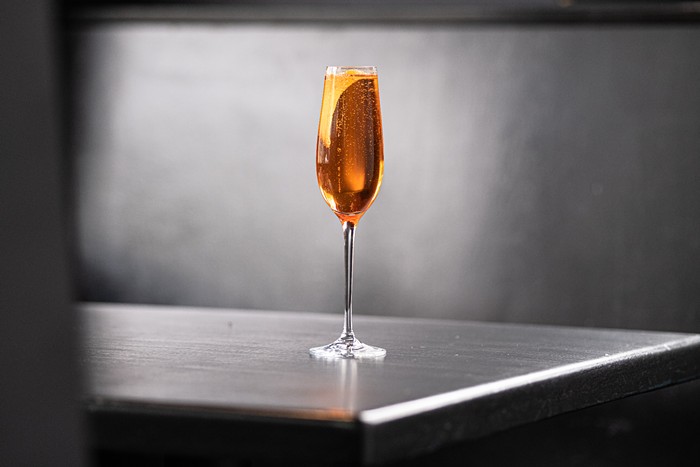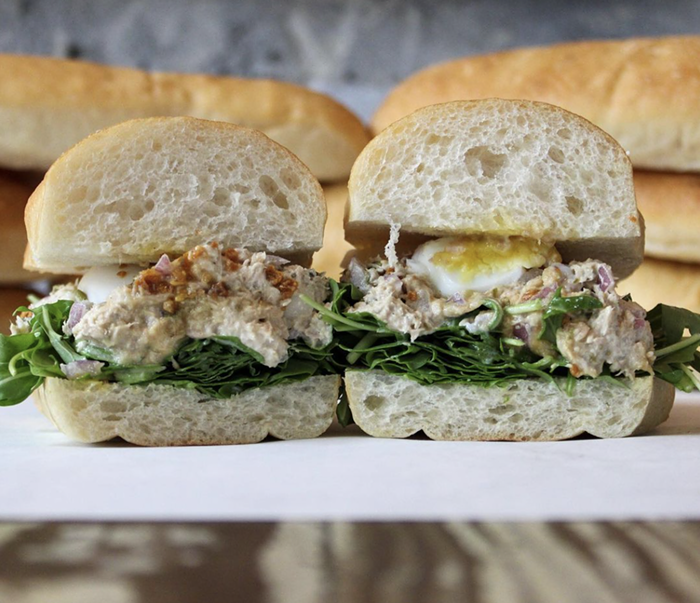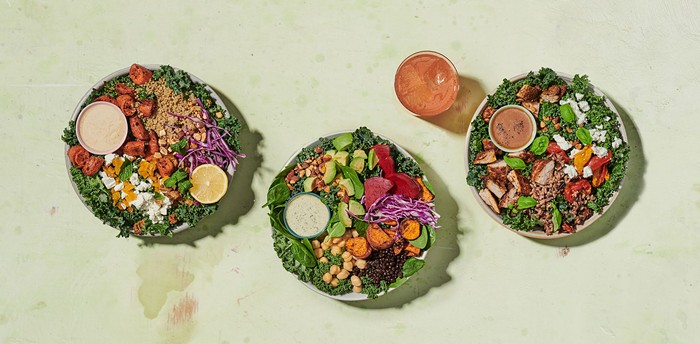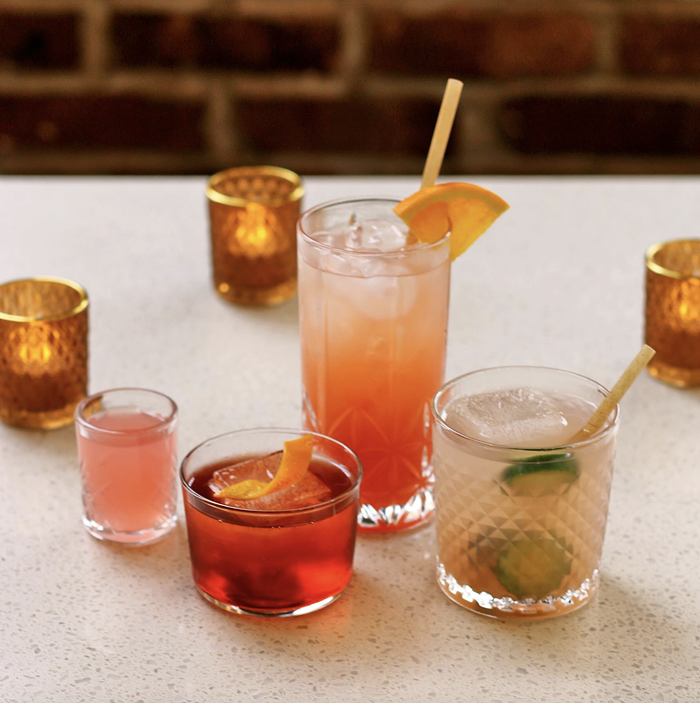If you're going to open a sandwich shop in Pioneer Square, Seattle's Sandwich District, you'd better have a good reason. I'm not talking about a gimmick. Gimmicky or otherwise overly precious
sandwich shops tend to flail and die; just ask the late, already forgotten Built Burger that opened on Second and James a few years ago. I'm talking about an identity, a sandwich mission statement that you can point to and insist, "This is why we're here."
La Bodega carries its mission in its name. It's a self-described "Dominican food shop," and owner Manu Alfau built the menu around favorite family recipes from his childhood in the Dominican Republic. This is one ethnic food that is not yet overrepresented in Seattle—while La Isla has dominated Caribbean cuisine in our city for years, there's plenty of space for a Dominican lunch counter to make its mark, even in an overcrowded sandwich environment.
And La Bodega certainly presents well. Tucked away on a corner of the criminally underdeveloped Prefontaine Place—seriously, this block should be a strolling urbanite's dream, but it's never happened, for a variety of reasons—La Bodega is small but attractive. It looks the way a lunch counter should: The walls are painted in bright whites and spring-friendly yellow-greens and pinks; there's a jaunty Dominican flag spread over one wall. All the tables and chairs are brand-new and tightly packed together—when the restaurant is full, it can be hard to leave without asking a neighbor to shift out of your way. The bathroom—and this is a rarity for Pioneer Square—is clean and attractive and spacious.
But how's the food? Well, it depends. The Riki-taki, which the menu describes as a Dominican sloppy joe ($9), is pretty good. It's Painted Hills ground beef and boiled egg soaked in a tomato sauce that hints at spice without making too much of an impression. The whole thing is stuffed into a roll from Macrina and topped with a generous helping of La Bodega's coleslaw, which is a light and vinegary take on the traditional shredded-cabbage-and-carrot side. You can't quibble with the quality or the freshness of any of the ingredients, but this is not a sandwich that strays in any meaningful way from the sloppy joes of your youth. A little more kick, or a little bit of a twist, would make this more memorable.
The empanadas de yuca ($3) are much more memorable. Made with a house-ground yuca crust—glutenphobes will be happy to hear that they're naturally gluten-free—and pan-fried in rice oil, they're a bit more gritty than the usual empanadas, but they're light and fluffy in a way that their more bready cousins simply cannot emulate. The ground beef, pine nut, and olive empanada is moist and all-around delicious, with just enough spice to remind you that it's Dominican. The sweet-potato and smoked-Gouda empanadas, while quite flavorful, are rather dry, requiring dipping sauce. You can also order a two-empanada dinner plate ($11), which comes with a side of coleslaw, a slice of avocado, a fresh and vibrant chimichurri dipping sauce, and a huge serving of beans and rice.
Rice and beans are surprisingly hard to pull off: You don't want them to overpower the plate with spice, but if they're too bland, they're nothing more than mushy gut-stuffing. These are an example of what beans and rice should be, a firm but tender side dish with a peppery kick that doesn't overpower, but which happily absorbs sauces. Any restaurant that perfects the basics like this is surely a restaurant that can get things right.
And the thing that La Bodega gets exactly right—the sandwich that serves as the food Alfau can point to and say, "This is why we're here"—is the puerco asado ($9). This slow-roasted pork shoulder sandwich is La Bodega's reason for existing. Laid out on a Macrina roll—do you ever wake up terrified in the middle of the night, like I do, wondering what would happen to Seattle's sandwich culture if Macrina were ever to go out of business?—and topped with chopped cabbage and pickled onions, this sandwich is a lovingly produced work of art. The marinated pork shoulder is so soft and juicy that you could practically spread it with a butter knife, but the secret weapon is that chimichurri, which is oily and vibrant and has a garlicky kick that ties the flavors together. It's a five-napkin mess, but any items of clothing you may ruin while eating the puerco asado sandwich will feel like a worthwhile casualty.
This is a sandwich to build a menu around, or to build a reputation on, and La Bodega seems to know that, too—first-time visitors are encouraged to try the puerco asado, and the shop has porny photograph postcards of the sandwich available for people to grab and take with them, as a memento of the experience. You probably won't need the postcard; this is a sandwich to remember. ![]()
